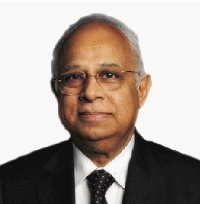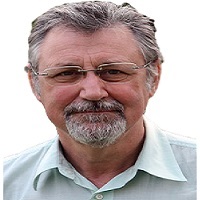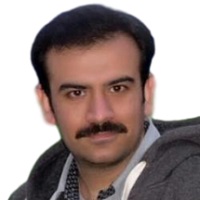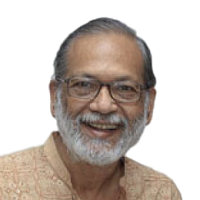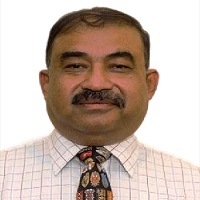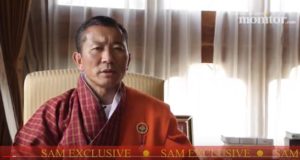China will not “sit as a judge†regarding armed conflicts between the Myanmar Army and ethnic armed groups, Sun Guoxiang, Chinese Special Envoy of Asian Affairs, has said.
The Irrawaddy was able to read the meeting minutes of the discussion between the Karen National Union (KNU) and the Restoration Council of Shan State (RCSS) on Myanmar’s peace process in China’s Kunming on Feb. 13.
Sun Guoxiang was quoted as saying: “China hopes that peace prevails in Myanmar, and would not like to say who is right and who is wrong. China would not sit as a judge, but will only push all the stakeholders in the peace process. China would like to urge the stakeholders to solve the problems at the negotiation table and will provide advice as a friend in case problems arise.â€
“China has a unique foreign policy toward Myanmar, and respects the sovereignty of Myanmar. China will not seek any interests from Myanmar, but is only doing its duty as a friendly neighbor,†Sun Guoxiang continued, in the transcript.
Sun Guoxiang met KNU chairman Gen Saw Mutu Say Poe and other high-ranking officials of KNU, as well as Sai Khuensai, an RCSS adviser, and director of the Euro-Burma Office (EBO) Harn Yawnghwe.
The meeting lasted for an hour, and focused on the latest developments in Myanmar’s peace process, the possibility of a second 21st Century Panglong Conference, the outcomes of a United Nationalities Federal Council (UNFC) meeting, and a proposed meeting with the Kachin Independence Army (KIA).
Harn Yawnghwe, in response to a question put forward by Sun Guoxiang, said that though Myanmar’s State Counselor Daw Aung San Suu Kyi accepted the work by the Union Peace Dialogue Joint Committee (UDPJC), Myanmar Army Chief Snr-Gen Min Aung Hlaing had been less cooperative and accepted only what he liked.
“Therefore, discussions have been meaningless,†Harn Yawnghwe said.
According to the NCA, the Joint Implementation Coordination Meeting (JICM), which is the highest-level meeting in the framework, must be held if problems are encountered in the negotiation process. Ethnic armed groups have wanted to summon JICM meeting, but the government thinks that it is unnecessary, he said.
When asked by Sun Guoxiang about disagreements between the government and Myanmar Army, Col Saw Htoo Htoo Lay of the KNU was quoted as saying: “Daw Aung San Suu Kyi wants to amend the 2008 Constitution immediately, but the army doesn’t want to do so, and amend it only after peace is achieved.â€
At present, only eight ethnic armed groups have signed the NCA, which many see as not enough; NCA signatories have also been trying to persuade non-signatories to sign the agreement, said Col Saw Htoo Htoo Lay, who urged Sun Guoxiang to assist with the process.
“To hold the Panglong Conference with eight ethnic armed groups is not enough. And we have talked about this with Daw Aung San Suu Kyi and the army chief. We have come here because we need the help of China in this ceasefire process. The clashes between the KIA and Myanmar Army must stop and the Myanmar Army must retreat,†Saw Htoo Htoo Lay was quoted as saying.
Sun Guoxiang said that the Chinese government had repeatedly told the Myanmar government, the Myanmar Army and the leading government peace negotiator Dr. Tin Myo Win, that NCA non-signatories should participate in the 21st Century Panglong, and that this would benefit all the stakeholders.
He added that he would also like to urge the KIA to join the negotiations so that it has the opportunity to talk about the issues that are important to the organization.
NCA non-signatories are able to use the peace negotiation mechanism only when they have signed the NCA, which should be the new landscape in Burma’s peace process, Sun Guoxiang said.
When asked by Sun Guoxiang about the ethnic armed groups’ communications with Daw Aung San Suu Kyi and the Burma Army, Sai Khuensai of the RCSS said that there has been a communications breakdown under the NLD government, in comparison to what existed under the previous government.
“The UNFC has contacted Dr. Tin Myo Win about their eight demands, but there has been no reply. Though there were informal communication channels under the previous government, there are none now,†Sai Khuensai was quoted as saying.
Sun Guoxiang said that China would like to establish communication channels with the KNU and RCSS. He warned that China understood that the KNU had closer ties with Western countries, but at the same time, China believed that the KNU would understand the intentions of such Western countries, and should be aware of their ambitions.
He said that China would assist as well as it could with Myanmar’s peace process, and re-stated that China’s donations for the peace process are not meant for the government. He added that he would like to know how such donations would be spent by the Myanmar Army and ethnic armed organizations. China, he explained, would make further donations if necessary, and its assistance and donations toward Myanmar would not stop until the country achieved peace.
As China has been providing help to the government’s Center for Peace and Reconciliation, Col Saw Htoo Htoo Lay asked Sun Guoxiang to back the Pyidaungsu Institute (PI) and the Euro-Burma Office (EBO), which are also engaged in the peace process.
Ethnic armed groups usually hold meetings in Thailand, and UWSA and National Democratic Alliance Army (NDAA) have not been able to attend them, said Col Saw Htoo Htoo Lay.
He asked if China’s government would accept meetings of ethnic armed groups in China. Sun Guoxiang said that meetings can be held in China, and that China is willing to facilitate, but that ethnic armed groups have to negotiate with the government and the army first.
Sun Guoxiang has attended ethnic summits held in the KNU-controlled region Law Khee Lar and the KIA-controlled region Mai Ja Yang, and has been actively engaged in Myanmar’s peace process. He has held talks with top leaders of the government and Myanmar Army.
“The message that there should no more be war in Myanmar should be spoken loudly by Myanmar Army, the government, and the ethnic armed organizations as well. Negotiations can be started only when clashes stop, and there will be wider choices through negotiation,†Sun Guoxiang was quoted as saying.


